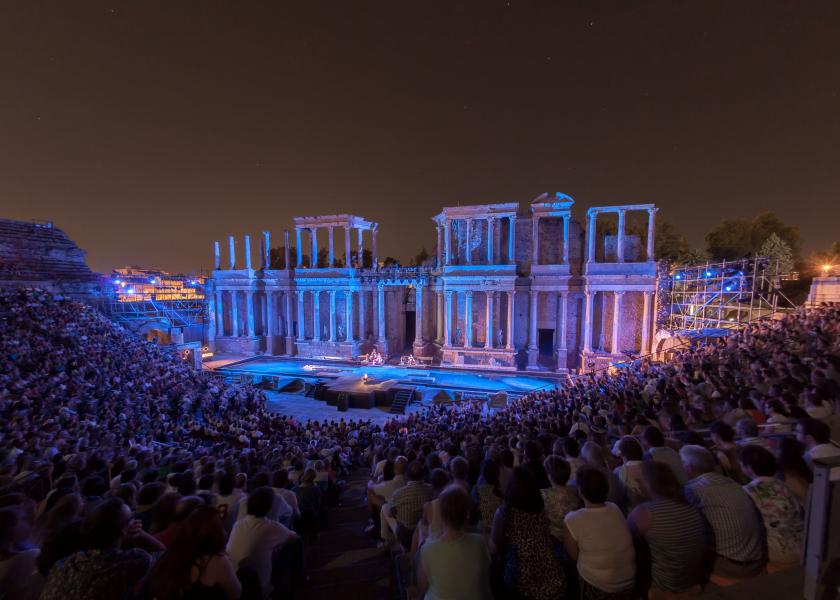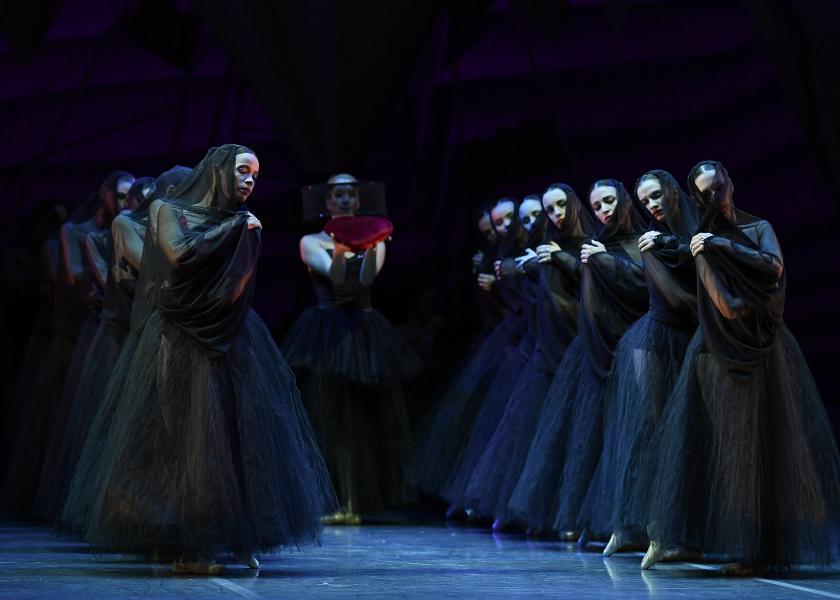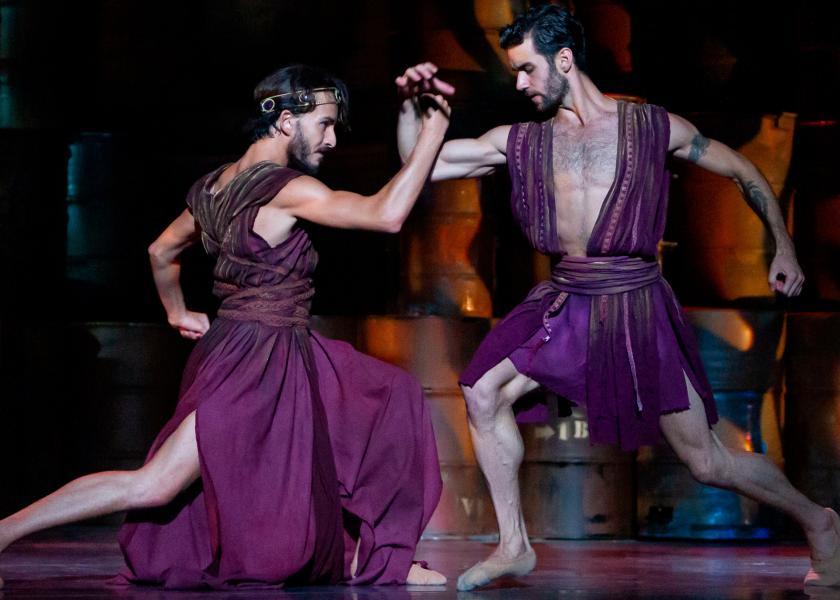Lluís Homar And José Carlos Plaza
For Love Of Pure Theatre
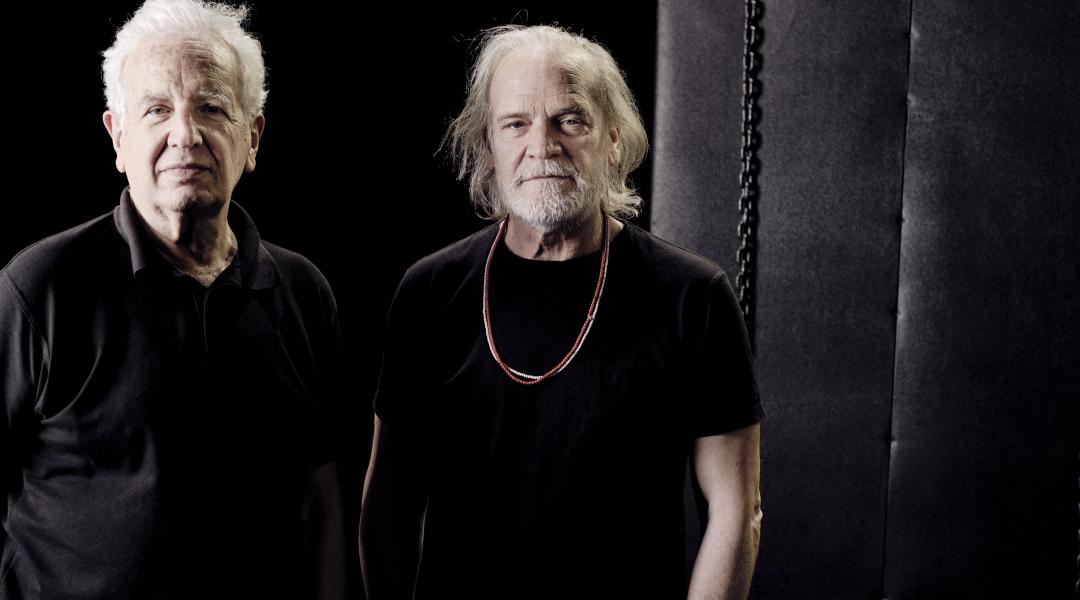
The premiere of the adaptation of Aeschylus’ 'Prometheus' by the great Spanish poet Luis García Montero is one of the main highlights of the Merida International Classical Theatre Festival. After one of the last rehearsals, in the midst of a severe heatwave, we talked with Lluís Homar (Barcelona, 1957), the play’s lead actor and the forthcoming director of the National Classical Theatre Company, and with José Carlos Plaza (Madrid, 1943), stage director and three times winner of the National Theatre Award.
Considered the most important of its kind, the Merida International Classical Theatre Festival is the oldest event in Spain devoted to the great Greek and Roman comedies and tragedies. The most prestigious theatre actors, actresses, musicians, dancers, directors, authors, lighting technicians, and costume designers have walked on its stones for over 65 editions of top quality productions.
Directed by José Carlos Plaza, Prometheus is a straightforward journey into the mind of a man tormented for having given fire to men against God’s will. This is an old man who wonders if the wars, the slavery, the failure of religions and the crises of ideologies he’s lived through have been worth it.
"Luis García Montero has brought the soul of Prometheus to our time, to 2019. How would Prometheus think today? How would he look at the world? That is the wonder García Montero has created," says José Carlos Plaza looking a bit anxious after doing the math and realizing it’s only two weeks before the premiere at Merida’s Roman Theatre, a building commissioned by consul Marco Vipsanio Agripa and erected between 16BC and 15 BC. "Despite my old age, I must say that this is the most important play that has come into my hands in all my career, a gem of inestimable value." Lluís Homar nods and adds: "Especially because of its ubiquitousness today. Prometheus decides to believe in men against God’s will. Mankind at this particular moment in history is more deeply buried in the sand than ever before for all the atrocities committed, especially over the past century.” Pointing to the wall, Plaza adds: “Every rehearsal day I’ve brought a photo cut out from a newspaper. Everything each of those photographs tell, all the horrors, are present in this play.”
Modern-day Prometheus looks at and speaks straight to the face of men and women. But there is still hope, “because we’re capable of the best and the worst,” says Homar, adding that despite it all, he has preferred not to burden his character with too much torment. “There’s torment enough in having to believe in mankind and coming to terms with all our weaknesses and crises. The key is whether human beings deserve so many extensions, whether they deserve to be depositories of so much hope.”
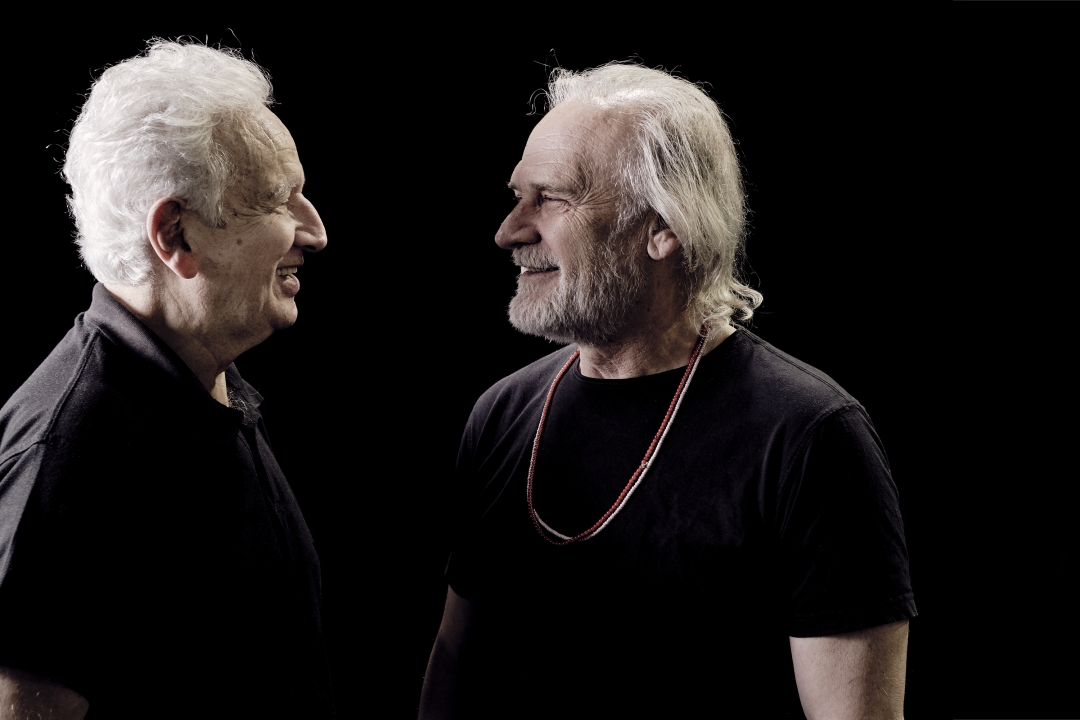
“I tremble with excitement at Jose Carlos Plaza’ unusual and immensurable love for actors. That said, he makes us work like slaves. This is sort of a full-time hell!”, Lluís Homar. © Diego Martínez
“Actors, with their talent, are the greatest communicators in any society, the ones responsible for conveying messages to people”, José Carlos Plaza
Given his age and acclaimed trajectory, the question of why Jose Carlos Plaza is still in the daily grind arises. "Because I still powerfully believe in actors. Actors, with their talent, are the greatest communicators in any society, the ones responsible for conveying messages to people. The fact that they are able, with their flesh and soul, to give life to a sheet of paper still impresses me. No matter how wonderful a text is, it’s still piece of paper. Look my goose bumps!”.
It just so happens that this is the first time Homar and Plaza work together. "Being able to work with such talented and experienced people like José Carlos Plaza keeps me active,” Homar says. “I tremble with excitement at Jose Carlos’ unusual and immensurable love for actors. That said, he makes us work like slaves. This is sort of a full-time hell!” (Laughs). "It’s an enormous pleasure to have fallen into it, though,” he continues. “When I was young I used to say this a lot: ‘I have a great deal of enthusiasm in store.' I still believe that the most important thing in life is to never lose the enthusiasm. Meeting people who’re equally passionate is a gift,” he concludes.
After seventeen performances, José Carlos Plaza knowns to perfection each and every one of the age-old stones of the Mérida Theatre. "Every time I walk that theatre, I say to myself—you're home now. Merida to me means freedom, it has the echo of time because I think—here’s where everything started. Besides being a beautifully rebuilt space, what I like most about it is the always polite and respectful audience.”
Lluís Homar’s trajectory is also outstanding. "My greatest pleasure as an actor, which has grown with age, is the feeling that you become a channel for a miracle. The miracle is not you—you’re just at the service of the miracle. The crux of the matter is giving yourself to the play and to the audience." An act of love José Carlos Plaza feels absolutely identified with: “Actors are the great instillers of emotions in our society. On the day of the premiere, I put myself in a corner and become a kind of voyeur that observes how actors and the audience make love.”
